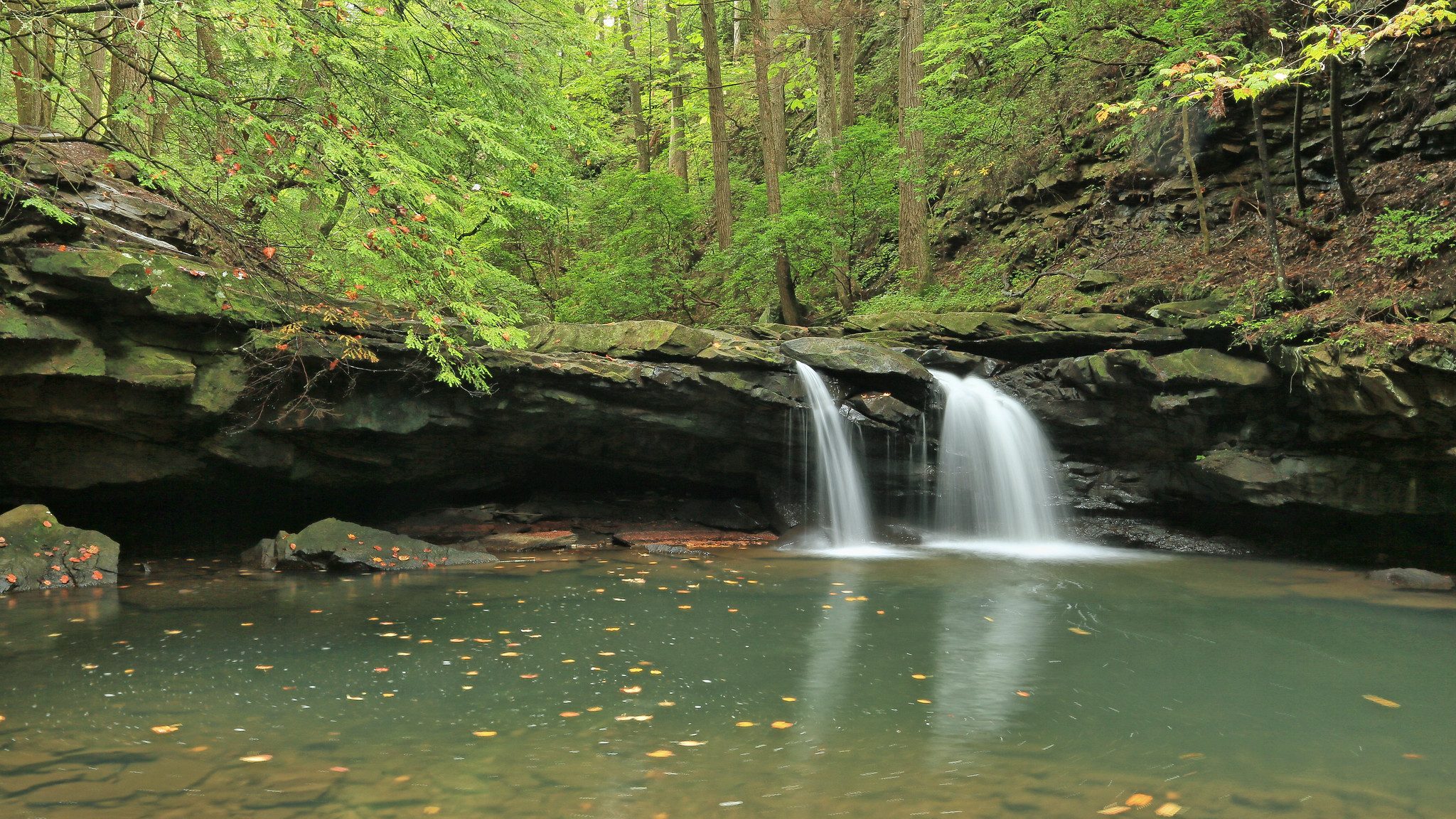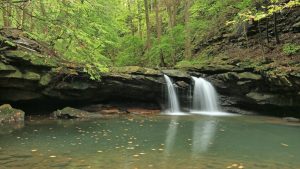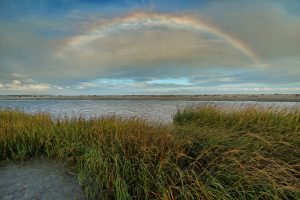April 2020 Newsletter

April 2020 Newsletter
Welcome to the Southeast Climate Adaptation Science Center’s April 2020 Newsletter.
For news and upcoming events related to the Southeast Climate Adaptation Science Center,
subscribe to our monthly newsletter.
SE CASC News | Resources | Publications | Tribal News | Partner News | Webinars | Events | Opportunities

Southeast Climate Adaptation Science Center News

In spite of the disruptions caused by COVID-19 to our collective daily lives, we at the Southeast CASC are continuing to work from home and support climate adaptation in our region. We plan to stay connected via email, phone, video calls, and webinars until we are able to meet face-to-face again. We hope this month’s content offers some points of engagement and inspiration. Stay well and stay positive!
Join us for the first webinar in our Spring/Summer Science Series brought to you by the SE CASC and the Southeast Conservation Blueprint team, highlighting SE CASC projects relevant to conservation in the South Atlantic region. SE CASC researcher, Steve Frank will present on April 16, 10 am ET, on Consequences of urbanization and climate change on human and ecosystem health. Register here.
The second Global Change Seminar, held on March 6, featured presentations by Dr. K.C. Busch and Reverend Susannah Tuttle on Faith and Reasoning in Climate Change Views. View a summary and recording of these engaging discussions here.
Thanks to Rachael Novak and Casey Thornbrugh for a great presentation on the Tribes and Indigenous Peoples chapter of the NCA4 on March 25, concluding our six-part NCA4 webinar series. If you want to review any of these presentations, they can be viewed here.
SE CASC Resources for the U.S. Caribbean explores resources developed by the Southeast and National CASCs to aid in learning more about climate impacts and adaptation in the U.S. Caribbean.
SE CASC PI, Steve Frank, and 2013-2014 Global Change Fellow, Michael Just, published a new SE CASC supported paper, Can Cities Activate Sleeper Species and Predict Future Forest Pests? A Case Study of Scale Insects, in the journal Insects. Learn more.
USGS Research Ecologist, Mitch Eaton is co-author on Spatial conservation planning under uncertainty using modern portfolio theory and Nash bargaining solution, which expands the applicability of Spatial Conservation Planning optimization methods to address complex conservation problems. Learn more.
Congratulations to Global Change Fellow, Lise Montefiore, awarded a 2020 USGS Science to Action Fellowship, for her project, Mapping Estuarine Vulnerability to Water Quality Change Under Future Climate and Land Use Conditions. Learn more.
SE CASC Research Spotlight by National CASC: Communicating Future Sea-Level Rise Scenarios for Coastal Federal Lands.
USGS Research Ecologist, Mitch Eaton co-authored A Decision Framework to Analyze Tide-Gate Options for Restoration of the Herring River Estuary, Massachusetts, developed with local managers to understand the implications of complex ecological and social tradeoffs and to guide decision making for the restoration of the Herring River estuary.
SE CASC Consortium PI, Lydia Olander, and SE CASC Researcher, Katie Warnell, co-authored Testing ecosystem accounting in the United States: A case study for the Southeast, a pilot study that compiled ecosystem extent, condition, and ecosystem services supply and use accounts for 10 states. Work was supported by SE CASC project, Ecosystem Services Mapping Datasets.
SE CASC Consortium PI, Wendy Graham worked on a NAS team to develop Progress Toward Restoring the Everglades, a review of the Comprehensive Everglades Restoration Plan.
SE CASC Researcher, Stephanie Romañach, is lead author on a new publication: Potential impacts of future urbanization and sea level rise on Florida’s natural resources, which modeled susceptibility scenarios to understand future impacts on the state’s conservation targets.
Researcher Spotlights: Kate Jones and Haofan Li.
Southeast CASC Researchers, Faculty Affiliates, and a former Global Change Fellow presented at this year’s NOAA Social Coast Forum. Learn more.
SE CASC Investigator, Erin Seekamp, is lead author on Historic preservation priorities for climate adaptation.
Faculty Affiliate, Alonso Ramirez, is co-author on When the rainforest dries: Drought effects on a montane tropical stream ecosystem in Puerto Rico.
Latest from Conservation Corridor: Can conservation corridor toolsets inform strategic planning to improve functional connectivity?
Resources
FEATURED RESOURCE

The National Wildlife Federation partnered with the Coastal States Organization to develop this report which was designed to promote the broader use of living shorelines. Living shorelines rely on “natural infrastructure”, including marshes, dunes, and oyster reefs, to protect our shorelines from frequent flooding, erosion, and land loss. This report offers a state-by-state summary of policies relevant to living shorelines and suggests best practices for how federal and state agencies can promote the increased application of these ecologically friendly shoreline protection techniques. Learn more.
Building and Measuring Community Resilience: Actions for Communities and the Gulf Research Program. This NAS report summarizes existing resilience measurement efforts for the Gulf of Mexico Region and identifies gaps and challenges associated with them. This interactive product also provides an overview of the report findings. Learn more.
Valuing the Flood Risk Reduction Benefits of Florida’s Mangroves presents findings from a Nature Conservancy study in which researchers used an insurance industry catastrophe model to quantify the economic benefits of mangroves in Florida for reducing coastal flood damages. Learn more.
Serious Games for Coastal and Marine Conservation, Management, and Adaptation. This list of “serious games” compiles information about role-playing/simulation games designed to educate stakeholders, professionals, students, and the general public about aspects of coastal and marine conservation, management, and adaptation. Learn more.
Plant Power Podcast, a six–episode mini-series from the North Carolina Botanical Garden, interviews expert naturalists to guide listeners in mitigating climate change impacts in their community. More information.
SERIES: Water Ways: Dutch Lessons for a Changing Coast. This reporting initiative created by WWNO New Orleans Public Radio and Climate Central explores how the Netherlands’ climate change adaptation strategies could provide a model for the Louisiana coast. Learn more.
Drought Impacts Toolkit. The National Drought Mitigation Center has released the Condition Monitoring Observer Report on Drought form which allows citizen scientists to report drought-related conditions and impacts in their area. More information.
Climate Solutions for North Carolina. A virtual panel, hosted by Wake Forest University, features three experts who led a discussion with 150 students, faculty, and community members from across North Carolina to discuss climate solutions for the state. Learn more.
In the Media
Researchers release playbook for combating red tide, other deadly algae. News-Press
To Save Louisiana’s Vanishing Coast, Build a Mini Mississippi Near Boston. NY Times
Lessons from the front line — Florida’s fight with sea level rise. The Hill
Climate action and sustainability: Indigenous peoples are part of the solution. WIPO Magazine
Op-Ed: Preparing for Droughts Should be a Priority in the V.I. The St. John Source
Notable Publications
The Role of Urban Growth in Resilience of Communities under Flood Risk. Urban communities are facing increased flood risk due to climate change and as economic development and population growth has driven urban expansion into flood-prone areas, this risk continues to grow. These authors suggest that the impact of urban growth on flood risk is somewhat overlooked, but that there needs to be a comprehensive understanding of this driver to effectively manage flood risk. They also highlight the importance of including urban growth in flood risk assessment and argue that planning for future urbanization should include numerical measures of flood impact in developing policies to achieve more resilient communities. Link to article.
The resilience of coastal marshes to hurricanes: The potential impact of excess nutrients. Coastal wetlands are an integral and effective nature-based defense to protect coastal cities from extreme storms. However, these ecosystems themselves are susceptible to the impacts of hurricanes, though the extent to which is not fully understood. This study utilized multi-decadal satellite data archives to explore the impacts of Hurricanes Katrina, Gustav, and Isaac on coastal marshes in Louisiana where these storms made landfall. The most severe damage of these storms was identified in the marshes of the Breton Sound basin and significantly higher nitrogen concentration was identified in this area compared to areas with less damage. Researchers speculate that these excess nutrients reduce the marshes’ root growth and degrade the root mat, potentially increasing the marshes susceptibility to hurricanes. Link to article.
Meaning in the face of changing climate risks: connecting agency, sensemaking and narratives of change through transdisciplinary research. This study employed a transdisciplinary approach to analyze the process by which communities make sense of changing institutional and natural environments, or sensemaking, and how this dynamic process applies in situations of changing climate risk. When confronted with change, people and communities make sense of the change in the light of their own knowledge, beliefs and experiences, leading to ambiguity in this study as researchers collected narratives from five communities across the globe. Ambiguity, or situations where narratives of change assign different meanings to the changes observed, was identified as a central challenge throughout the study. However, researchers argue that by clarifying such ambiguities and shifting to a place-based and community–centered focus, climate science could contribute to an increase in local agency, thus enhancing the adaptive capacity of communities. Link to article.
Migration Corridors and Threats in the Gulf of Mexico and Florida Straits for Loggerhead Sea Turtles. Loggerhead sea turtles (Caretta caretta) in the Gulf of Mexico migrate from foraging areas to nesting beaches every 2–4 years. Understanding the conditions and potential threats along these migration routes is crucial to conservation efforts of this threatened species. Utilizing 89 migration routes from five nesting beaches in the Gulf across 8 years, researchers used spatial data to identify corridors, analyze peaks in migration timing, and overlay anthropogenic threats during those times to determine a migration threat index for the species. These results can be used to inform management strategies for loggerhead sea turtles and to inform adaptive management decisions as threats change over time. Link to article.
Verification of extreme event attribution: Using out-of-sample observations to assess changes in probabilities of unprecedented events. This study presents a framework for the verification of anthropogenic influence on independent extreme climate events. Researchers examined whether “out-of-sample” observations could be used to assess the accuracy of changes in extreme event return intervals predicted by attribution frameworks. The first step of analysis involved verifying the contribution of the observed trend to the event probability and the contribution of the historical forcing to the event probability using “out-of-sample” observations. In the second stage of analysis, researchers attempted to understand discrepancies in the predicted probabilities of record-setting events and the actual out-of-sample occurrence. The regional verification ratios for 2006-2017 often exceeded the published attribution ratios calculated from the 1961-2005 dataset, suggesting that the published attribution results frequently underestimate the influence of global warming on the probability of unprecedented hot and wet extremes. Link to article.

Tribal News
Visit USET Climate Change Headlines for updates on information regarding climate science events, funding opportunities, best practices, and highlights from across the USET region.
ITEP has a new course offering, titled CC 202: Work in a facilitated cohort group to develop or update a Tribal Hazard Mitigation Plan based on FEMA’s requirements. The registration deadline has been extended to May 1. Register here.
The National Tribal & Indigenous Climate Conference has extended the deadline for the Call for Proposals until May 1. The conference is scheduled to be held from Aug. – Sept. 3, 2020. Learn more.
In this TED talk entitled “Indigenous wisdom should be at the heart of climate activism,” Hindou Oumarou Ibrahim discusses the need for greater inclusion of Indigenous peoples’ valuable knowledge to adapt, restore and protect our planet and to complement science in the fight against climate change. Watch the presentation here.
Science Friday: How Native American Communities are addressing Climate Change. As part of its “Degrees of Change” series, Science Friday explores how some Tribal Nations have developed climate change risk assessments and adaptation plans. Listen here.

Regional Partner News
Southeast Conservation Adaptation Strategy: SECAS is more than the Blueprint
USDA: Fourth Inventory of U.S. Virgin Islands’ Forests
NOAA National Center for Environmental Information: March U.S. Climate Report
South Atlantic LCC: Landowner compliance with management incentives

Webinars
April 16 | 10am – 11am | SE CASC/South Atlantic Spring/Summer Science Series: Consequences of urbanization and climate change on human and ecosystem health
April 16 | 12pm – 1pm | Changing Hydrology
April 16 | 12pm – 1:15pm | Impacts of a Changing Climate on Wetland Ecosystems
April 16 | 2pm – 3pm | Connecting for Conservation: Conservation Storytelling
April 21 | 1pm – 2pm | Apalachicola-Chattahoochee-Flint (ACF) River Basin Drought Assessment Webinar
April 22 | 2:30 – 3:30 | Troubled Waters and Troubled Planet: 50 years since the first Earth Day
April 23 | 6pm – 7pm | Gardening Corals for Reef Restoration
April 27 | 12pm – 1pm | Impacts of a Changing Climate on Wetland Ecosystems
May 5 | 1pm – 2pm | Career Pathways in Boundary Work & Co-production
May 19 | 1pm – 2pm | Options for adaptation, risk management, and resilience building in a changing climate: Q&A about the IPCC Special Report
May 21 | 10am – 11am | SE CASC/South Atlantic Spring/Summer Science Series: Building Adaptive Capacity in a Coastal Region Experiencing Global Change

Upcoming Events
Find more upcoming events in our calendar.
April 13-17 | Climate Adaptation Data Week | Online
Oct. 14-15 | SC Water Resources Conference | Columbia, SC
Oct. 26-28 | Carolinas Climate Resilience Conference | Durham, NC
April 26-28, 2021 | National Adaptation Forum | Atlanta, GA

Opportunities
Student Announcements
The National Climate Adaptation Science Center is accepting applications from students and recent graduates to work on systematic review of the documented and projected impacts of climate change on ungulates in western North America. Apply here by April 24.
The Climate Science Alliance and the International Community Foundation are seeking a Climate Resilience Fellow. Apply here. Applications will be reviewed as they are received.
Hiring Announcements
The North Central Climate Adaptation Science Center is hiring a National Park Service Research Assistant. Apply here by May 4.
The USDA Southern Plains Climate Hub, located in El Reno, OK, is seeking a new Director. Apply here by May 5.
The Nature Conservancy and the University of California Santa Barbara are hiring a West Coast Climate & Fisheries Associate Specialist. Applications are still being accepted here.
The Pew Charitable Trusts are hiring a Senior Associate for the Lenfest Ocean Program. Apply here.
Research Grants
National Fish and Wildlife Foundation has released Conservation Partners Program – State Based Initiatives 2020 Request for Proposals, due May 6. Information here.
The North Carolina Department of Justice is accepting applications for the Environmental Enhancement Grant program. Apply here by May 28.
The Science for Nature and People Partnership has opened a call for funding proposals. Apply here by June 10.
Miscellaneous
The deadline to submit a presentation, poster, session, workshop, or training for the 2020 Carolina’s Climate Resilience Conference has been extended to May 15. Learn more.
The Intergovernmental Panel on Climate Change has extended the deadline for expert comment on the second-order draft of the Working Group I contribution to the Sixth Assessment Report (AR6). Comments can be submitted here until 11:59pm ET on June 5, 2020.
- Categories:


